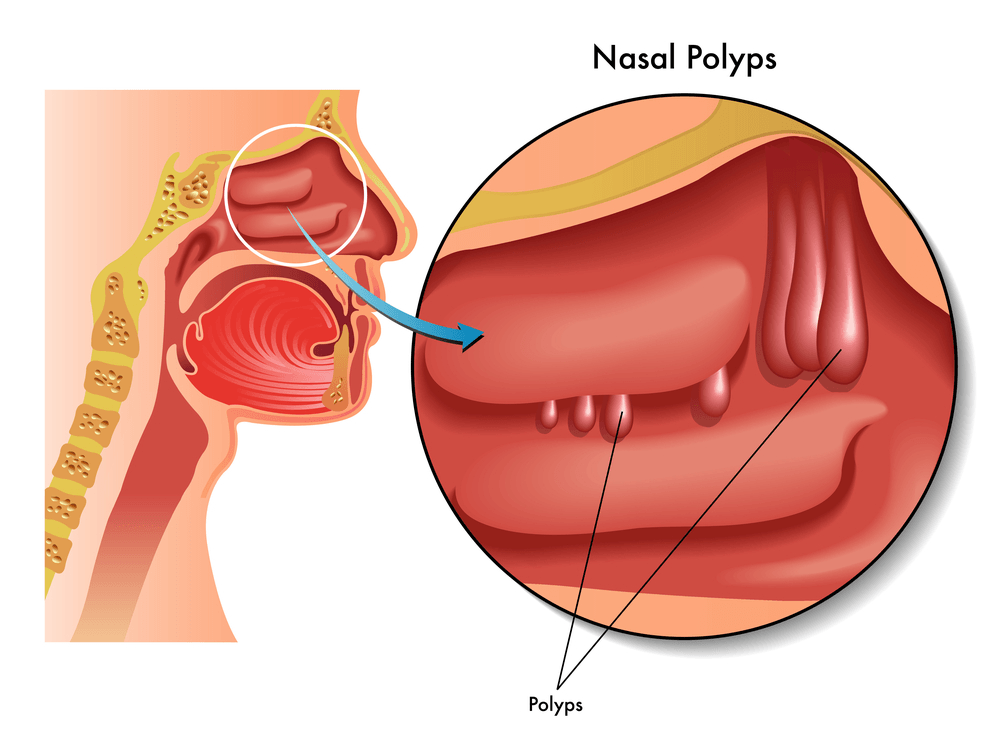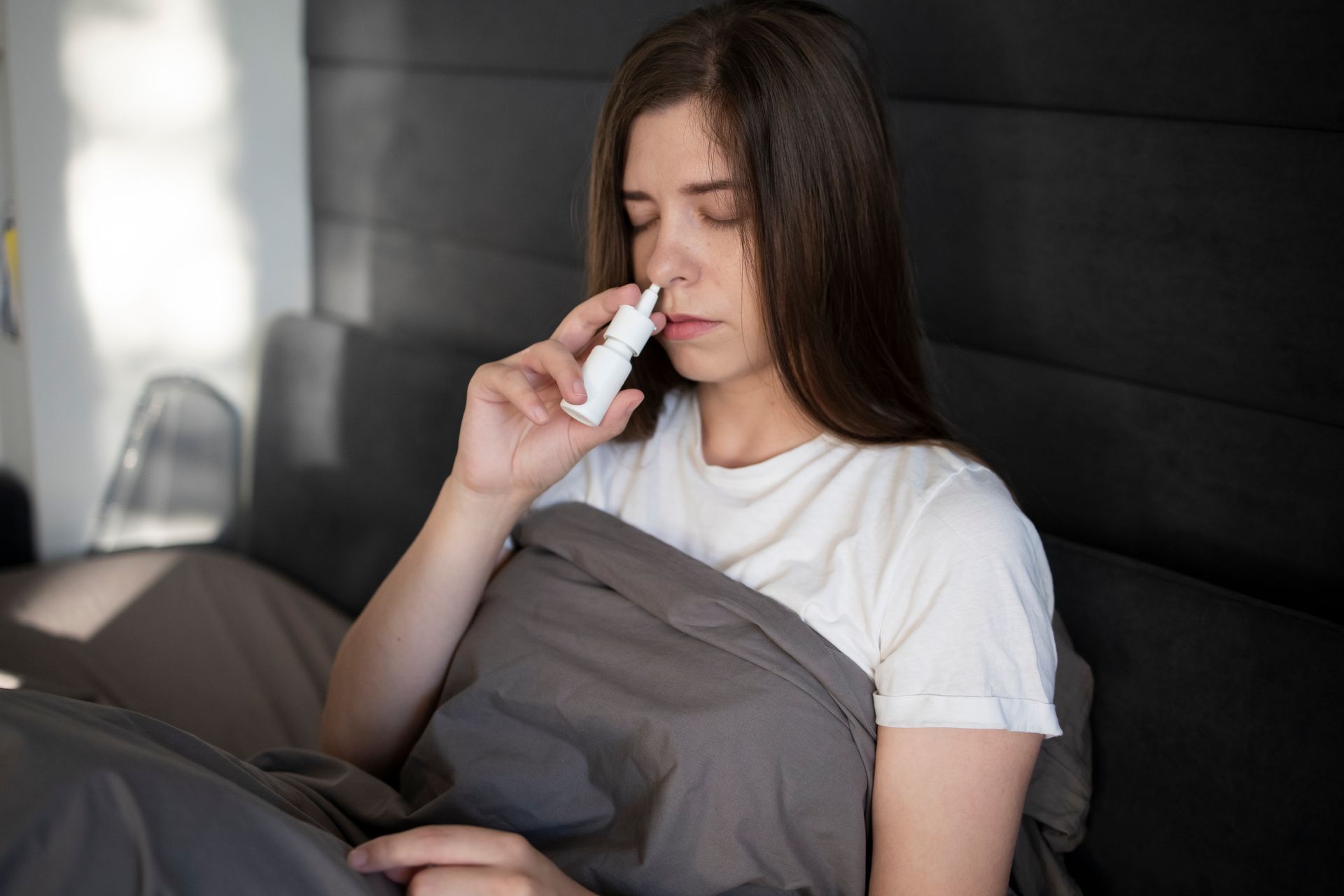When to use and when to avoid nasal decongestant sprays
Are you constantly suffering from nasal congestion? Do you feel like your nose is blocked more often than not? If so, then this blog post is for you. We'll discuss when to use and when to avoid nasal decongestant sprays, as well as other remedies that can help with your congestion.
What are Nasal Decongestant Sprays?
Nasal decongestant sprays are a type of medication that work to relieve nasal discomfort caused by colds, allergies, and hay fever. They contain active ingredients such as oxymetazoline which work to reduce inflammation in your nasal passages and inhibit mast cells. Nasal decongestant sprays come in a variety of forms including pills and liquid sprays that can be used to temporarily relieve nasal congestion. It is important to use these medications only as directed on the label and do not use them for more than a week at a time, as using them for too long can make your stuffiness worse. It is also important to be aware of the risks associated with long-term use of nasal decongestants, including rebound rhinitis medicamentosa (RM). For those looking for relief from nasal congestion, it is important to weigh the risks and benefits before using a decongestant spray and consider alternatives if necessary.
How to Use Nasal Decongestant Sprays
Nasal decongestant sprays are a great way to quickly relieve congestion caused by colds, allergies, and hay fever. When using these sprays, it’s important to follow the label instructions. Generally, these products should not be used for more than a week at a time as using them for longer can result in rebound congestion. Oxymetazoline 0.05% spray (Afrin) advises patients aged 6 and over to use two sprays in each nostril twice daily. It is important to avoid using decongestant nasal sprays for too long as it can lead to Rebound Rhinitis Medicamentosa, in which the user develops rebound congestion after stopping the spray. If symptoms persist or worsen with continued use of a nasal decongestant spray, it is important to see your healthcare provider for further advice and treatment options.
Types of Nasal Decongestant Sprays
Nasal decongestants come in a variety of forms, including pills, sprays, and drops. The most commonly used decongestant sprays contain either oxymetazoline or phenylephrine as their active ingredient. Oxymetazoline is a longer-acting decongestant that provides relief from nasal congestion for up to 12 hours. Phenylephrine is a short-acting decongestant that provides relief from nasal congestion for less than 4 hours. It is important to use any nasal spray with caution and only as directed on the label to avoid rebound congestion and damage to the delicate nasal tissue. Speak to a doctor if you are unsure which type of nasal spray is right for you.
Short-term vs Long-term Use of Nasal Decongestant Sprays
Decongestant nasal sprays and drops should be used sparingly, as they are only supposed to be used for short-term relief. Generally speaking, these decongestants should not be used for more than a week at a time, as using them for too long can make your stuffiness worse. This is known as rebound congestion or rhinitis medicamentosa. If you are using a nasal spray for more than three days, it is important to speak to a healthcare professional to find out if the spray is safe to use for long-term use and whether there are any alternatives available.
Risks Associated with Long-term Use of Nasal Decongestants
One of the risks associated with the long-term use of nasal decongestant sprays is rebound rhinitis medicamentosa (RM). This condition occurs when the body becomes dependent on the spray and loses its ability to function normally without it. Symptoms of rebound congestion or dependency on nasal spray may include: Nasal congestion, facial pressure or pain, difficulty breathing through the nose, and a stuffy nose that returns soon after using a nasal spray. Additionally, long-term use of these sprays can also damage the tissue, causing infection and pain. Therefore, it is important to only use these sprays for short periods of time, ideally no more than three or four days, and to speak to a doctor about any prolonged symptoms that may require a stronger form of treatment.
Rebound Rhinitis Medicamentosa (RM)
Rebound Rhinitis Medicamentosa (RM) is a potential consequence of prolonged use of nasal decongestant sprays. It is a form of rhinitis that is caused by the overuse of topical nasal decongestants. When used as directed, topical decongestant nasal sprays are safe and effective for short-term relief of nasal congestion. However, if you use these sprays for more than three days in succession, you may develop RM when you stop using the spray. Symptoms of RM include nasal congestion, sneezing, and postnasal drip. It is important to avoid using nasal decongestant sprays for longer than 10 days to prevent RM and other risks associated with long-term use. If you are having trouble managing your stuffy nose, there are alternatives to decongestant sprays that can help provide relief from symptoms such as a saline spray or steam inhalation.
When to Avoid Using Decongestant Sprays
It is important to avoid using decongestant sprays when they are not needed. People should not use decongestant nasal sprays for more than a week at a time, as using them for too long can cause rebound congestion and damage to the delicate nasal tissue. People with nonallergic rhinitis may be tempted to use over-the-counter nasal sprays containing a decongestant, such as oxymetazoline or phenylephrine, but they should avoid doing so if possible. Oxymetazoline nasal drops and sprays should only be used for the first three days before switching to an alternative form of relief. Additionally, people should avoid sneezing or blowing their nose immediately after using the spray. Keeping these tips in mind and following the instructions on the packaging can help people safely use nasal decongestants and avoid any potential risks associated with long-term use.
Alternatives to Nasal Decongestants
If you need to avoid using nasal decongestants, there are other options available. Nasal steroid sprays, such as Flonase (fluticasone), can help reduce congestion and inflammation in the nasal passages. Additionally, oral decongestants like pseudoephedrine can be taken as needed. These should only be used for a short period of time and not combined with a nasal spray. Alternatively, saline irrigation can help clear out clogged nasal passages and flush out allergens that can trigger congestion. Finally, drinking plenty of fluids and using a humidifier can also provide relief from congestion. When deciding on a treatment for nasal congestion, it is important to consult with your healthcare provider to discuss the best option for you.
Conclusion
In conclusion, nasal decongestant sprays can be a great way to reduce nasal congestion. However, these sprays should only be used for a short period of time, as using them for too long can lead to rebound rhinitis medicamentosa or other risks. To use nasal decongestant sprays safely, it is best to follow the instructions on the packaging and speak to a doctor if you have any concerns. If you experience symptoms of rebound rhinitis medicamentosa, discontinue use of the spray immediately and seek medical advice. Alternatives to nasal decongestant sprays such as intranasal corticosteroids may be better suited for those suffering from chronic congestion.
Thomas S. Higgins, MD, MSPH
Father. Husband. Sinusitis Nerd.















